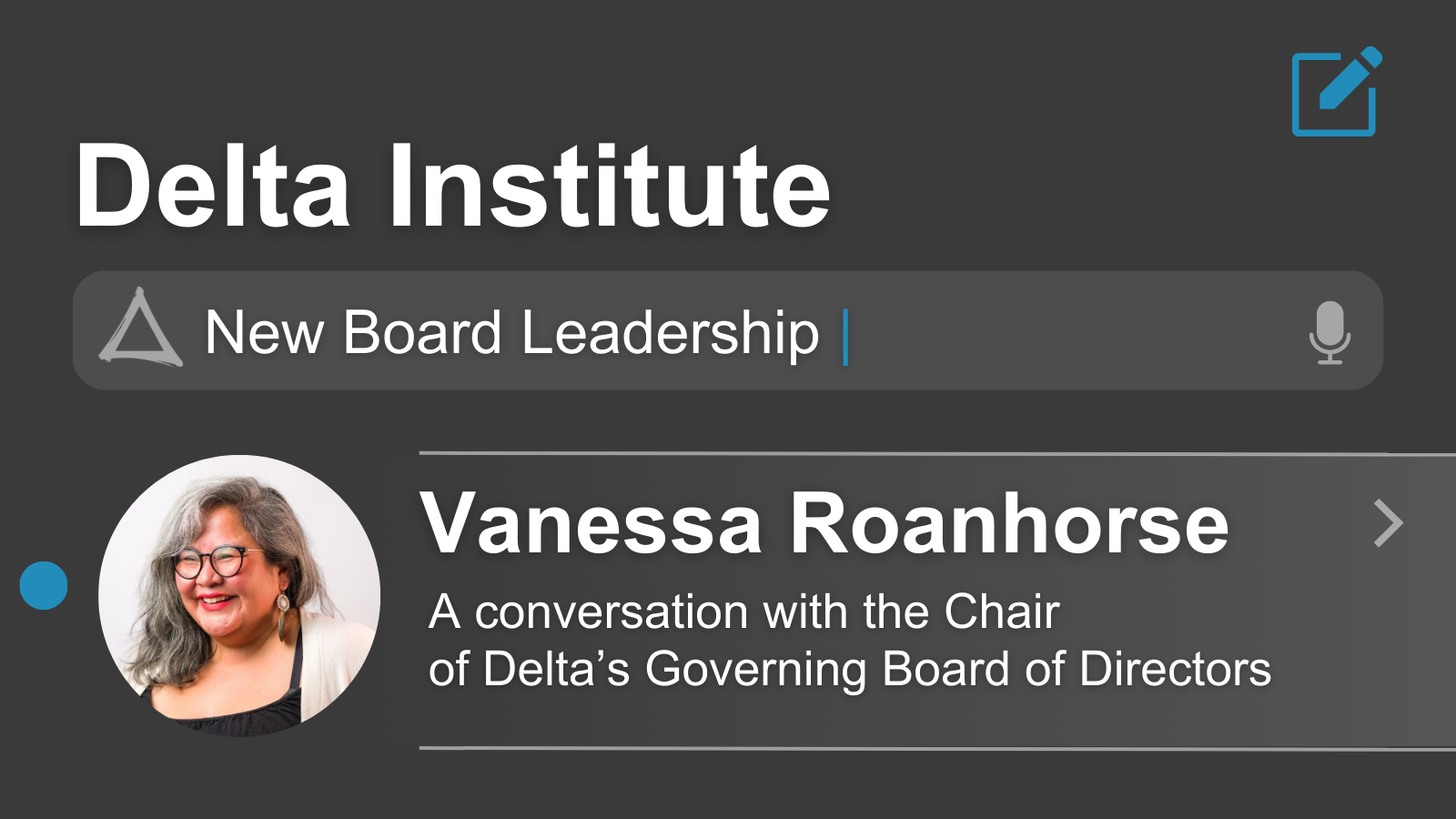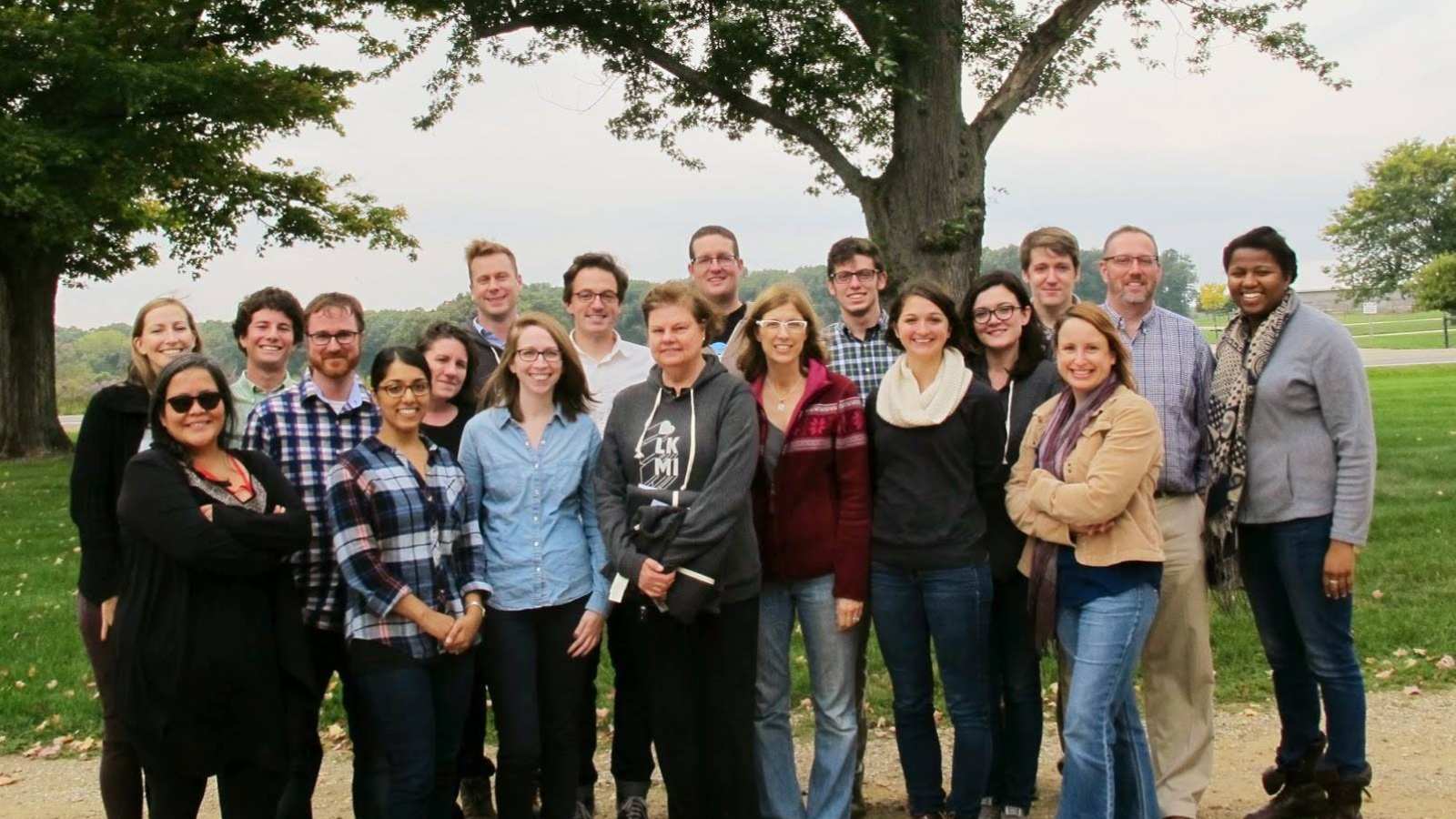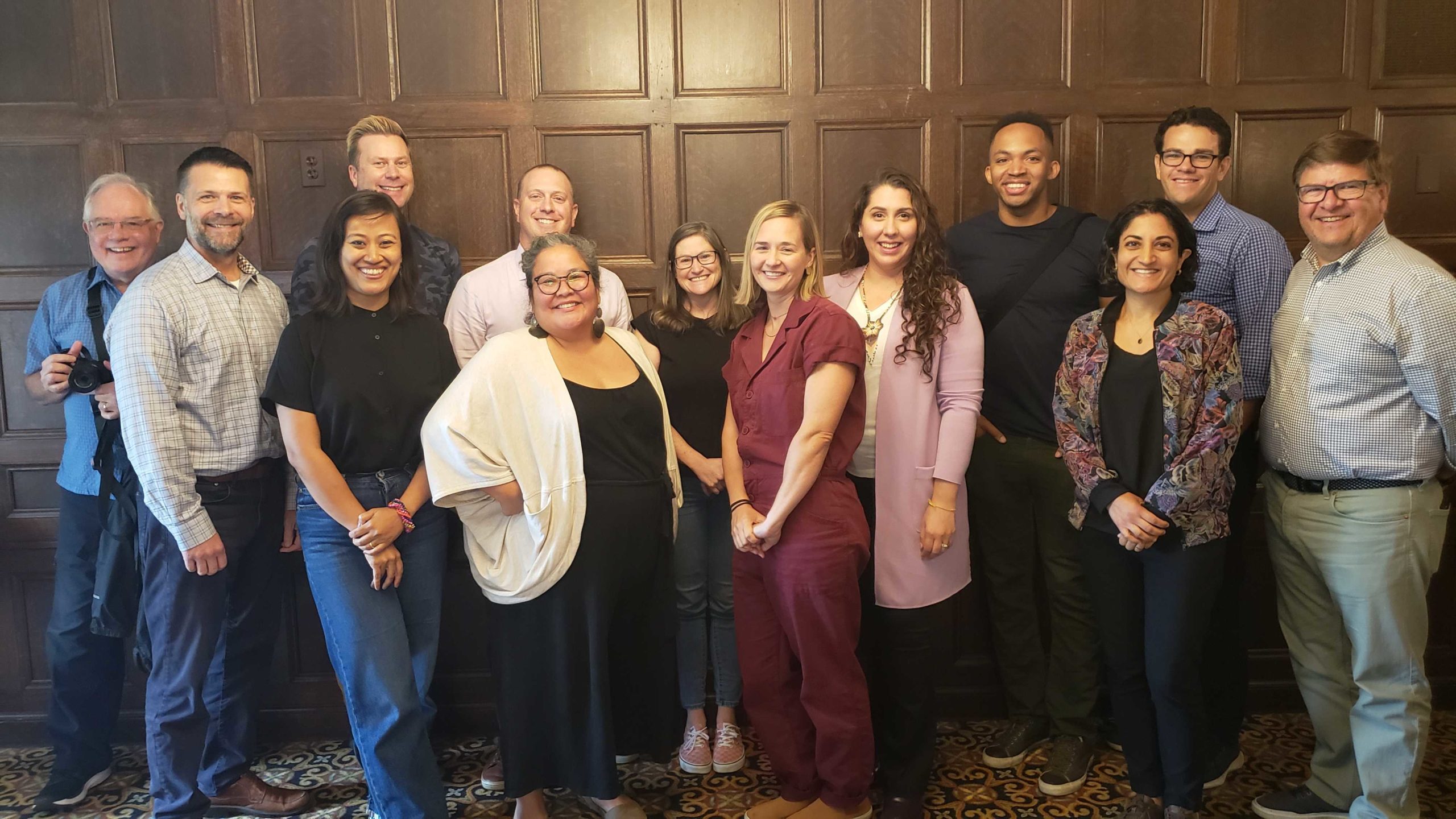
On July 1, 2024, Delta welcomed new members and swore in new officers to our Governing Board of Directors. Vanessa Roanhorse has sat on Delta’s Board since 2020, and now serves as Board Chair. She recently spoke with us about her journey with Delta Institute — from joining the organization as an administrative assistant, to then leading projects, and now taking on Board leadership.
Read Vanessa’s bio here, or learn about her company at RoanhorseConsulting.com.
[D]: Delta Institute Staff | [VR]: Vanessa Roanhorse
Vanessa’s Story
[DELTA INSTITUTE]: How did you initially get involved with Delta Institute?
In 2007 I found myself living in Chicago working for a large national real estate company, managing a large building downtown. The culture was very corporate and needlessly wasteful. Coming from the reservation and growing up not being able to own our lands, working in real estate seemed antithetical to my own values and sense of self. How I ended up in real estate was beyond me, and by 2007, I was ready for something else. A friend, Elise Zelechowski, mentioned that they were hiring at Delta for an administrative assistant. I had never worked for a non-profit, and was very intrigued by the mission which felt aligned with my own values as a Diné human being. So, I quit my job and began my very short stint as the administrative assistant, and so began the journey at the Delta Institute.
[D]: That’s quite a change. And there was a lot of change early on in your time at Delta, right?

2014 staff picture of Delta Institute during Vanessa’s tenure on the programs team.
[D]: How did that program relate to the weatherization resources that are available today, like LIHEAP?
[D]: Where did that program direct your journey with Delta?
[D]: Would you say that was a turning point for how Delta approaches projects overall?
[VR]: When I started, Delta Institute’s team consisted of highly talented technical experts, many with experience in state and local government. The organization, like many environmental groups, was primarily white-led and focused on academic, solution-oriented work. While Delta had strong technical expertise, it lacked diversity. During my time there, I participated in the early development of the Environmentalists of Color Network, which aimed to create more diverse spaces and conversations within the sector. This group has since grown, continuing the vital work of connecting environmental efforts with social and racial justice.
What has evolved at Delta is the recognition that our technical work must be rooted in caring for the world and the people in it. We do this because we want our children and grandchildren to thrive, as do the people most affected by environmental racism. There’s a clear link between those most impacted by environmental crises and those who are consistently underfunded, and it’s evident why they’re underfunded. We’ve long been aware of issues like economic mobility, gender violence, environmental racism, and discrimination against disabled, LGBTQIA+, and neurodivergent communities. However, we previously lacked the language to connect our resource-driven efforts for sustainable change with this social awareness. Now, we understand that this work is driven by love—for people, all living things and for the planet.
What has evolved at Delta is the recognition that our technical work must be rooted in caring for the world and the people in it. We do this because we want our children and grandchildren to thrive, as do the people most affected by environmental racism.
After I left, I noticed that Delta had become more diverse and that leadership was increasingly focused on thinking holistically about our services and impact—not at the expense of those facing challenges, but to enhance the efforts they were already making. The conversation about decentering Delta as the sole solution started around that time. Leaders like Bill Schleizer embraced these ideas and integrated them into Delta’s culture and values.
[D]: You joined the Board around the time the Strategic Plan was being revised. So on that note of operationalizing, what are some of the changes you’ve seen since then?
I felt I joined at the right time, as I could share my expertise and emphasize that communities now demand to author their own stories rather than let others tell them. We need not just allies, but co-conspirators—partners and investors willing to support the systemic shifts needed for real change. The period when we ratified the DEI [Statement of Commitment], the Land Acknowledgement, and the Black Labor Acknowledgement, was revolutionary. Delta showed that these steps are not only possible but essential if we want to live up to our statements. When other nonprofits said, “That’s difficult. There’s no clear way to do it. We don’t want to alienate anyone,” I pointed to Delta as an example: they’ve done it, they’re still here, and they’re financially successful.
The process Delta undertook was so strong that I’ve referenced it with other organizations that hadn’t traditionally made such statements. Delta became a model for me, and I’ve invited Bill and the team multiple times to share their approach with other organizations and foundations looking to do the same.

Vanessa Roanhorse with other members of Delta Institute’s 2022-2023 governing board at their annual retreat, hosted at Chicago’s South Shore Cultural Center
[D]: That’s great, and I’d imagine you expect to see more situations where Delta models systems in that way in the future. For one, I know that Delta’s Environmental Finance Center (EFC) has been so effective in its outreach to communities in need of our Water Technical Assistance that EFCs elsewhere in the country have consulted us for guidance. Where else do you see Delta growing as a developer of model systems?
Delta’s advocacy work, as seen with the Environmental Finance Center and other programs, demonstrates the limitless potential when we understand our role in the ecosystem, acknowledge privilege and power, and lead with our hearts. There’s never been a question about Delta’s technical expertise—they have the brains. But the true alchemy comes from connecting the heart and the brain, something Delta excels at. Alchemy is art, science, and magic, and for Delta, the magic lies in their love for the planet, all living beings, and our natural resources.
[D]: A lot of the issues Delta seeks to address are entrenched in overarching systemic injustices. And many people, in particular young folks, are daunted by the magnitude of the climate action needed to offset those injustices and safeguard future generations. How do you reassure or encourage people struggling with climate anxiety or pessimism?
[VR]: The teachings from my Diné culture remind us that we are just one part of a long thread. We can look to our ancestors, acknowledge our present, and carry their wisdom into the future. We’re not responsible for fixing everything, but we are responsible for bringing that ancestral wisdom forward and showing up every day.
I often tell my team that we won’t see the generational changes we’re working towards within our lifetime. Once we accept that, we’re liberated to do our very best in the time we have. This is a multigenerational process, and we are part of that change. If we’re at a pivotal moment in time, we must each do our part to move the needle in the right direction.
When I talk to young people, I emphasize the importance of pacing yourself, having fun, and enjoying the world around you. Work is not life. But if you wake up every morning with the intention to do what you believe is right, even if you don’t achieve it every day, you get another chance the next morning.
7 principles of Indigenous worldviews:
- First, knowledge is holistic, cyclic, and dependent upon relationships and connections to living and non-living beings and entities.
- Second, there are many truths, and these truths are dependent upon individual experiences.
- Third, everything is alive.
- Fourth, all things are equal.
- Fifth, the land is sacred.
- Sixth, the relationship between people and the spiritual world is important.
- Seventh, human beings are least important in the world.
As board chair, I look forward to bringing my worldview to the work we do at Delta. We need many perspectives to ensure we create a world where all of our children and grandchildren will thrive.
Delta Institute is so grateful to Vanessa Roanhorse for sharing her time, passion and perspective with us. Thank you!
If you or someone you know might be interested in making a difference by joining Delta’s Board of Directors, please consider emailing us for more information. Or if you know of an emerging professional who would be interested in joining the Delta Emerging Leaders Associate Board, you can click here to learn more.

